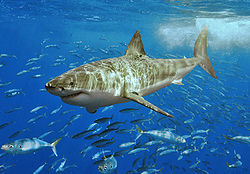Update on Shark Cull in Western Australia
December 5, 2011 Leave a Comment
Last month, I blogged about the proposed shark cull in Western Australia. Now, I have an update on what  happened with this: Victory for the sharks!
happened with this: Victory for the sharks!
Recently, Western Australia’s sharks have caused a bit of a raucous; there have been four lethal shark attacks in the past fourteen months. To prevent further injury, local politicians and residents proposed a drastic solution: a shark cull.
To prevent the unnecessary deaths of sharks and other wildlife that would have been caught by the culling nets, activist Ryan Kempster and the NARC dive club started an online petition that was signed by nearly 19,000 people. As a result, the WA government opted for non-lethal shark monitoring measures. On November 15, 2011 the WA Fisheries Minister Norman Moore announced that the WA government will invest $13.65 million over the next five years towards this effort. In order to reduce the risk of shark attacks, this money will go to creating a shark response unit (including increased aerial surveillance), more shark research, and swimmer education. The great white shark tagging program will also be extended for two more years, and will focus on sharks near popular swimming areas. Additionally, the Fisheries department will further assess local fisheries management practices.
Norman Moore stated that the WA government is “trying to get a balance between protecting these species, which are protected under law, at the same time as giving people as much information as [the government] can about the likelihood of a shark attack when they go swimming.”
Shark culling nets don’t work. The majority of the sharks caught in the nets are headed back out to sea. Instead, these nets are excellent at indiscriminately killing innocent wildlife, such as seals, whales, stingrays, turtles, and dolphins. 
Ryan Kempster expressed his appreciation: “This is a great day for our WA sharks and shark conservation worldwide.” Well said, Ryan.
Thank you to everybody who signed the petition and supported shark conservation! They are vital to the oceanic environment and play a key role in maintaining balance.





SocialVibe